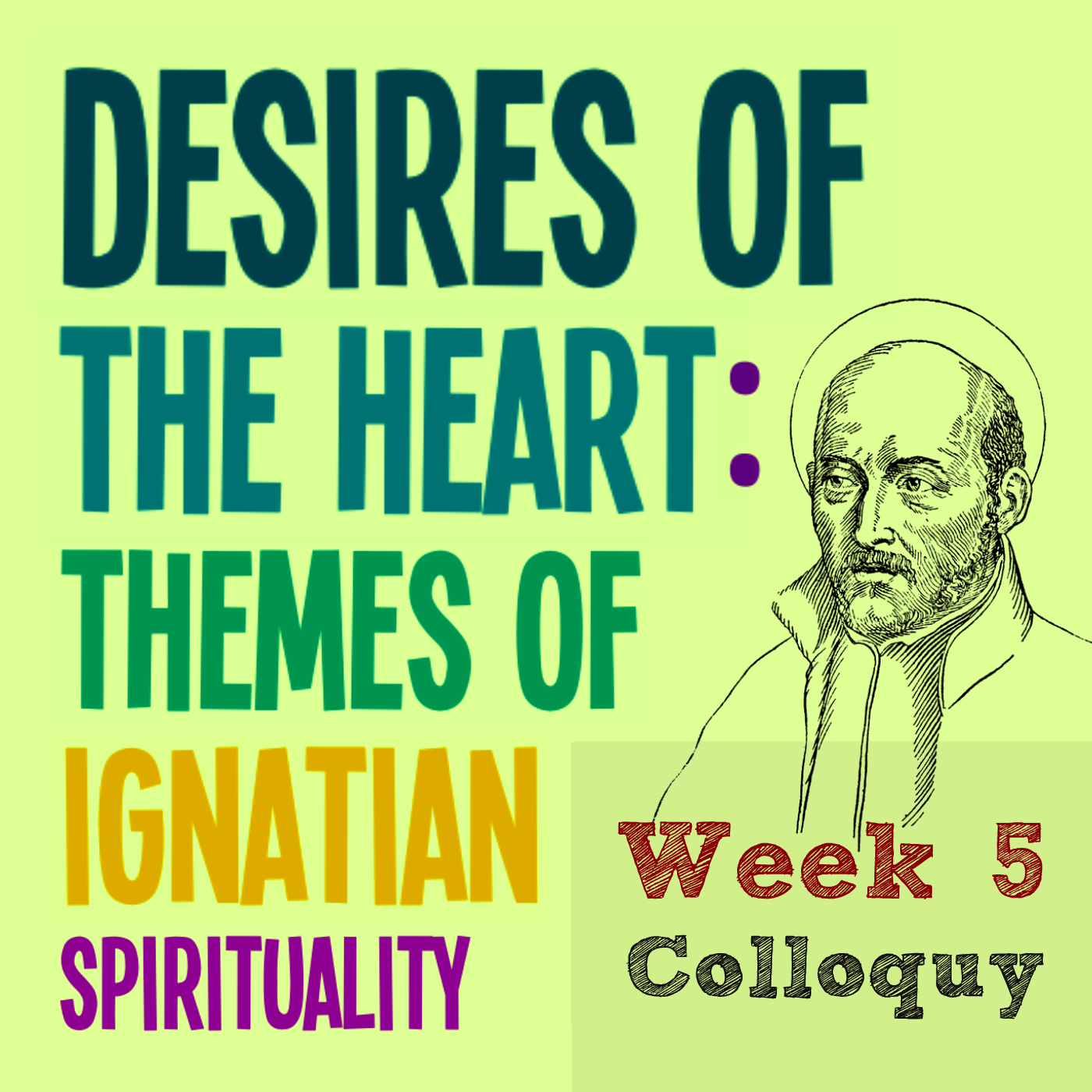 Saint Ignatius believed God could communicate directly with us through various aspects of our human experience, including our conversations with others, our feelings, the insights we have in prayer, scripture, daily experiences, and the stirrings of our heart. In his Suscipe prayer Ignatius acknowledges that all these things are gifts from God.
Saint Ignatius believed God could communicate directly with us through various aspects of our human experience, including our conversations with others, our feelings, the insights we have in prayer, scripture, daily experiences, and the stirrings of our heart. In his Suscipe prayer Ignatius acknowledges that all these things are gifts from God.
Take, Lord, and receive all my liberty,
my memory, my understanding,
and my entire will,
All I have and call my own.You have given all to me.
To you, Lord, I return it.
Ignatius desires to “return” these things to God so that God can use them, transform them. “Everything is yours; do with it what you will.” I’ve written before about how understanding is even a gift that sometimes we must surrender to God, as Ignatius does in this prayer. Ignatius’ prayer interestingly mentions intangible gifts—really, only things that can be experienced. And memory is one of them.
Memory is something people of all faith traditions engage. Jews remember the story of God liberating their ancestors from the oppressor. Christians remember the stories of Jesus, the apostles, and the disciples of the early church. We’re reminded of God’s faithfulness. Memory is a way God speaks. When we reminisce about a joyful time with family or recall a past hurt from which we’ve healed, God reveals things that we value. Memory teaches, but it also reminds us that memories cannot always be changed. They often become a part of us. We may even have traumatic memories that may not easily be brought to the consciousness but still remain in the fibre of our being.
Ignatius engages our memory in a number of ways:
- The Examen – In this daily prayer exercise we’re invited to recall the memories of the day and to pay attention to how God might have been present or speaking to us through our day’s experiences and feelings. We look at the memories of interactions, memories of feelings, and memories of gratitude.
- Imagination – Ignatian contemplation is a form of prayer that engages one’s imagination by stepping into the living memory of Jesus. We’re invited to imagine a Gospel passage come alive in our mind’s eye and notice what arises. Here is another way God communicates to us through the intangible.
- Repetition and Summary – After one prays, Ignatius strongly encourages we review the prayer experience itself and later return to it to seek more fruit, often called a repetition. The review of the prayer experience Ignatius calls a “summary”, asking “that the understanding, without wandering, may assiduously go through the memory of the things contemplated in the preceding Exercises.”
When people pray, a common issue is distractions. Distractions may actually be memories God is using to draw our attention. Pay attention and ask the key question: What is the source? Is the distraction a memory where God is inviting you to contemplation or is the distraction simply trying to pull you away from prayer?
In prayer we may imagine a Gospel scene, but we can also re-enter one of our own personal memories, asking God to enlighten us. It may be a joyful or nostalgic memory where God reveals to us those things that are important. It could be a difficult memory where God is inviting us to heal by re-entering it and moving through it. James Martin, SJ says, “God may invite you to remember something that consoles or delights you. What is God saying to you through those consoling memories?”
Two weeks ago I spoke with Tim Muldoon about the importance of memory in relationships. Returning to those memories and old photos can be very sacred. “Calling forth memories is a beautiful thing to do to summon to mind, ‘How has God blessed us?'” Ignatian spirituality engages the cyclical nature of relationships, continuously reflecting and returning to memories and drawing fruit from them into the present and future. This includes our relationship with family, partners, friends, and God.
In the Spiritual Exercises, Ignatius invokes this cycle by introducing the three-fold question: What have I done for Christ? What am I doing for Christ? What ought I do for Christ? Again we’re invited into our memory, examining our relationship with Christ, noticing those ways we might be invited to go deeper in our spiritual life.
Our life is not simply linear. Even psychologically and sociologically human beings must tap into personal and collective memory in order to discern learnings and values they wish to bring forth into their future. Ignatius integrated this human process into his entire spirituality of contemplation and action, review and repetition. Memory is a powerful gift and a primary way God speaks to us and invites us to the magis.
What personal memory is God inviting me to return to?
Listen to the podcast version of this post and subscribe.









Hi Andy, you’ve done a beautiful job with the topic of memory, which has become such an integral issue with so many people living with dementia towards the end of their lives. Ignatius gives us the gift of using it to glorify God by offering all that he has given to us as a gift of appreciation back to Him. Thank you! Beautifully done! Blessings,
Marie
I look forward to unpacking this Andy! I’ve certainly spoken to many of the people I see in direction about this very topic and have probably spoken about this on my Facebook wall more than once. This is why a friend of mine pointed me to your article…so yes indeed, I do look forward to going deeper in this with you! Thanks for your words and your wisdom! Your old Jesuit buddy from Canada, Dan Leckman.
Great podcast! Can you point me to the source of that Jim Martin quote??? Seriously, so helpful.
Hi Kurt – It was from the Jesuit Guide to (Almost) Everything, page 132 I believe.
Thanks so much!
I received much grace whilst reading and contemplating on your article. Thanks